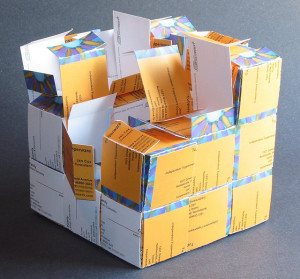“Boxes ? What do you mean boxes ?” the client said almost yelling at her partner. While she was trying to understand where he was coming from, he was recoiling from the emotional backlash that came from his (what he thought a) seemingly benign comment.
This interaction sent ripples through the relationship. The voracity of his wifes response totally threw him, his immediate reaction was to drop his head like a young boy would do when he was being told off by his mother for bringing mud into the house. Immediately after that he retreated emotionally to avoid further emotional pain.
His wife on the other hand kept coming at him with questions, it was like a verbal barrage, question after question with little or no time to respond. This went on until she finally saw his physical and emotional state and this is when she realised she had done the opposite of what she wanted, her partner to feel safe enough to make himself vulnerable and open up to her, instead in her confusion and frustration he shut down.
Boxes
This is quite common in our attempt to understand the situation in front of us. We quite often make it worse because of our frustration (and even vulnerabilities). This is a really important topic that I will cover in another post but today I want to talk about men and their boxes or to put it another way, the ability that many men have to compartmentalise different aspects of their life. Before I go on, this is a generalisation as many women do the same thing but for today, it’s about him :).
During his time in the military, David was subjected to assaulted on different occasions (by his “mates”), ordered to expose himself to potentially carcinogenic substances with no protection, watched preferential treatment go on around him and to different extents, bullying and intimidation. At his lowest, David even considered suicide, unfortunately an all too common event especially with veterans.
As a coping mechanism, “David” developed this “skill” of compartmentalisation, it wasn’t something he did on a conscious level but nevertheless did.
Sticking things in boxes worked, it helped him deal with the internal conflict going on in him about the things he had experienced (and that weren’t the things he had trained for). What made it worse was the fact that the system allowed them, with no consequences for the perpetrators and no recourse for David.
In order to get by, he had placed his relationships, in particular the one with his wife in a box, once again not a conscious decision but one that had serious ramifications for them. Some of these side effects were, emotional distance from his wife, it tended to make him “unavailable” to her when she needed him, anger & depression became more prevalent in their lives. It wasn’t until many years later that he came across the concept of covert depression something that rang true for him (and many other men).
Believe it or not he was in a cycle, the very thing that was meant to help contributed to his turmoil. More he boxed things up, more he had internal conflict that led to more anger and so on. He had said on several occasions that he didn’t want to be angry, but every time he got angry he hated it and that made him angrier. An unpleasant position to be in to say the least, especially for those around him.
So it was only after many years of internal (and external) conflict that he got to a point where he had the capacity to understand (and deal with) not only the past trauma but the loss of the relationship that he could’ve had. The concept of sadness was foreign to him, he had to (re)learn what it was to live without boxing things up.
This was not easy, he had to learn to be vulnerable, to live with “these things called emotions & feelings” that come and go sometimes with good reason and other times no reason at all. It was difficult, he struggled with the urge to “pack it all up” because it was easier to deal with one emotion, anger.
Watershed moment.
Anyway, while watching a TV show where a couple were breaking up, the female character was, as he put it, “getting all emotional” and the guy was showing no emotion, even a matter of fact look. David saw himself in the male character and in a sliding door moment, took the chance, made himself vulnerable and asked his wife, “what does a woman think when she sees that in a guy ?”.
Well let’s just say that he wasn’t expecting what came next. The first thing she said was “that he doesn’t care”. He felt like a knife had gone into his chest. He struggled with the feeling of failure and shame and it brought him to tears, it was then he turned to his wife and said “I always cared”.
In that moment, an exchange that lasted a few minutes, they grew closer, maybe closer than ever before. The trust David felt in his wife allowed him, maybe even gave him “permission” to empty some boxes and close them for good. She had shown him, through patience, understanding and love that there is another way of dealing with things. Maybe not as “neat and tidy” as he was used to, maybe “messy” at times, but he felt it was better than boxing things up.
David and his wife are a work in progress (just like the rest of us) but what made this story so special was the love, patience and understanding that his wife practised to help him become the man she saw in him. I guess that’s what it’s all about, being there for our partner, helping them when they need it. ![]()
Andrew is a Couples Coach in his private practice, Kardinya Counselling located in Werribee & Point Cook, Victoria. After working in the IT industry for 15 years, he started following his passion of helping couples find a better way of relating.

